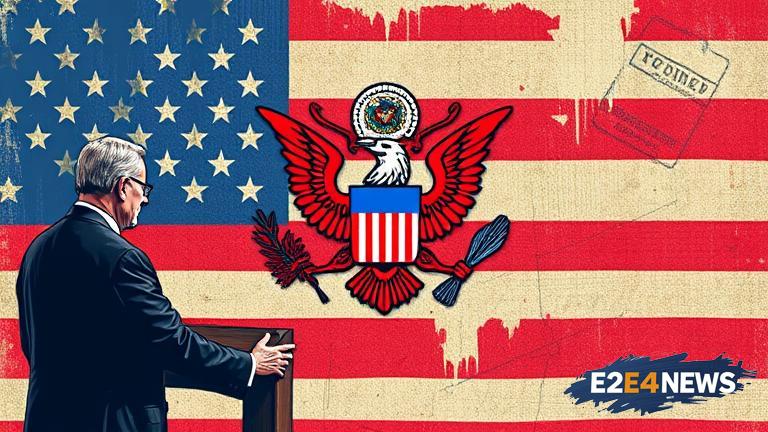The US Justice Department has sent a letter to 44 states requesting detailed voter registration data, including names, addresses, and voting history. This move has sparked widespread controversy and concerns over voter suppression and election integrity. The request has been met with resistance from many states, with some officials calling it an overreach of federal power. The Justice Department claims that the data is needed to investigate voter fraud and ensure compliance with federal voting laws. However, many experts and voting rights advocates argue that the request is a thinly veiled attempt to suppress voter turnout and disenfranchise certain groups. The request has also raised concerns about the security and privacy of voter data, as well as the potential for it to be used for partisan purposes. The Justice Department has given states a deadline of July 31 to respond to the request, but many are expected to resist or refuse to comply. The controversy has sparked a national debate over voting rights and election integrity, with many calling for greater protections and safeguards to ensure the integrity of the electoral process. The request has also highlighted the ongoing struggle for voting rights in the US, particularly for marginalized communities. Many states have implemented voter ID laws and other restrictions that have been criticized for disproportionately affecting minority voters. The Justice Department’s request has been seen as a further attempt to restrict voting rights and undermine the democratic process. The controversy has also sparked concerns about the role of the Justice Department in enforcing voting laws and protecting the rights of voters. The department has been criticized for its handling of voting rights cases in the past, and many are questioning its motives and intentions in this latest move. The request has also raised questions about the potential consequences for states that refuse to comply, including the possibility of legal action or other penalties. As the controversy continues to unfold, many are calling for greater transparency and accountability from the Justice Department and for stronger protections for voting rights. The issue has also sparked a national conversation about the importance of voting and the need to protect and expand voting rights. Many are arguing that the US needs to move towards a more inclusive and expansive voting system, one that ensures all eligible citizens can participate in the democratic process. The controversy has also highlighted the need for greater investment in voting infrastructure and election security, particularly in the wake of concerns over Russian interference in the 2016 election. As the debate continues, many are watching to see how states will respond to the Justice Department’s request and what the consequences will be for those that refuse to comply. The issue is likely to be a major point of contention in the coming months, with significant implications for the future of voting rights in the US. The Justice Department’s request has been seen as a major test of the Trump administration’s commitment to voting rights and election integrity, and many are questioning its motives and intentions. The controversy has also sparked concerns about the potential impact on marginalized communities, who may be disproportionately affected by any efforts to restrict voting rights. As the situation continues to unfold, many are calling for greater action to protect and expand voting rights, and to ensure that all eligible citizens can participate in the democratic process.





